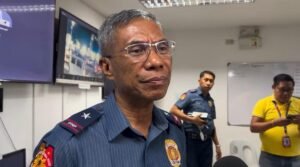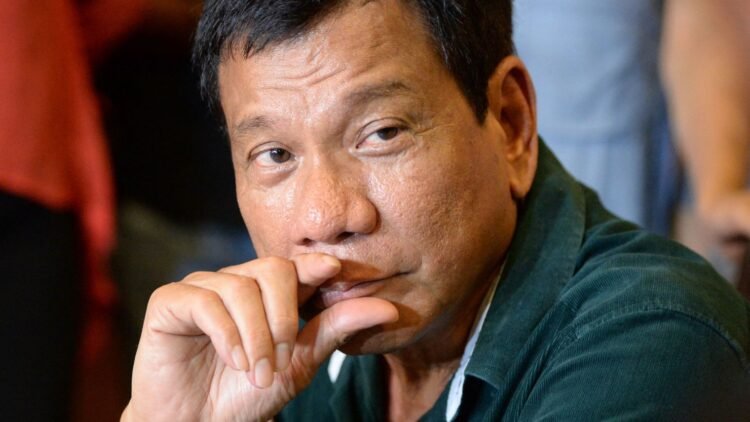MANILA, Philippines — Former Philippine President Rodrigo Duterte was involved in a tense 12-hour confrontation with police after being arrested in Manila, as ordered by the International Criminal Court (ICC). The standoff occurred at a Philippine air base on Tuesday, where Duterte was ultimately placed on a government-chartered flight to The Hague, Netherlands, where he was detained by the ICC on charges of crimes against humanity.
Philippine Police Maj. Gen. Nicolas Torre detailed the incident, explaining that Duterte, 79, resisted police procedures such as fingerprinting and even threatened to make the process deadly. “You have to kill me to bring me to The Hague,” Duterte was quoted as saying during the standoff, which also saw members of his family and legal team blocking his transfer. The tense altercation resulted in one officer suffering an injury from being struck by a cellphone, according to Torre.
ICC spokesperson Fadi El Abdallah confirmed that Duterte had arrived at the court’s detention center after undergoing medical checks, although no date has been set for his first court appearance.

A Brutal Legacy and Reversal of Fortune
Duterte, once infamous for his violent anti-crime campaigns, is now facing international legal consequences for his actions during his presidency. His harsh rhetoric and controversial policies—such as his war on drugs that led to thousands of deaths—earned him both admiration and criticism. However, his sudden reversal of fortune has sparked debate. Human rights advocates celebrate his arrest as a victory against state impunity, while his supporters accuse the government of surrendering a former president to an international court whose jurisdiction they reject.
The former leader’s arrest came shortly after he arrived at Manila’s Ninoy Aquino International Airport with his family and friends. He was then taken to the Villamor Air Base, where police attempted to process his arrest, but Duterte and his supporters resisted the booking procedure. The standoff continued for hours before police were finally able to force Duterte onto a Gulfstream G550 executive jet, which took him to The Hague.
Legal and Political Repercussions
Duterte’s legal team has contested his arrest, arguing that Philippine authorities did not present an ICC warrant and violated his constitutional rights. The Philippines had withdrawn from the ICC, but President Ferdinand Marcos Jr.’s administration allowed the global court to take custody of Duterte.
Vice President Sara Duterte, the former president’s daughter, called the arrest a violation of Philippine sovereignty, describing it as an affront to the nation’s independence. She condemned the action as “oppression and persecution.” Marcos, however, denied these accusations and defended the government’s decision to comply with the ICC’s request.
Duterte’s Prediction and Controversial Statements
Before returning to Manila, Duterte acknowledged the possibility of his arrest, accepting that it might be his fate. His unapologetic demeanor and controversial statements have long defined his political persona. In one infamous incident during his presidency, Duterte insulted Pope Francis, calling him a “son of a bitch,” and later sparked outrage after criticizing the Catholic Church for its influence in Filipino politics.
As Duterte now faces the consequences of his actions, the tension between his supporters and critics continues to grow, with the arrest marking a significant moment in Philippine history.

 English
English



























































